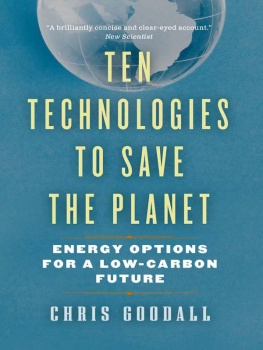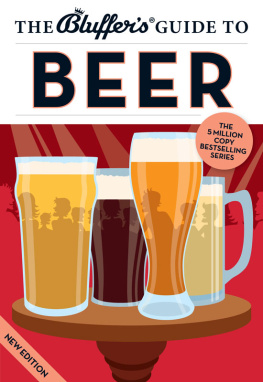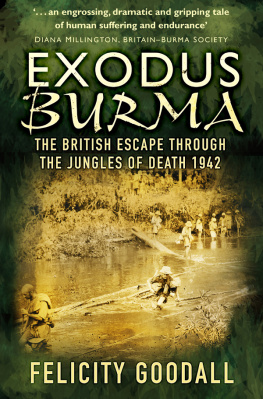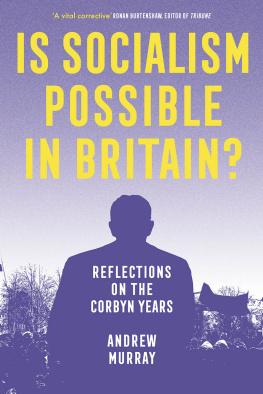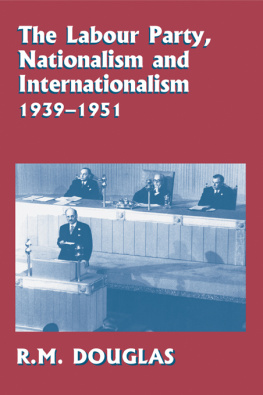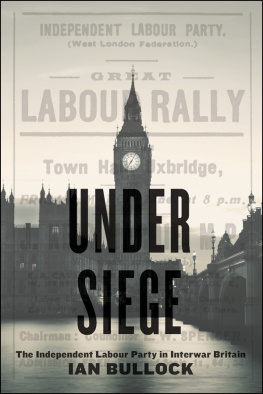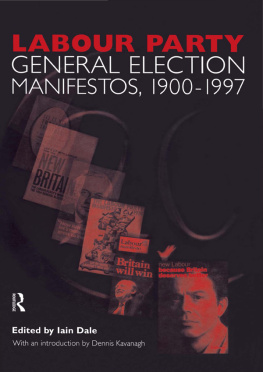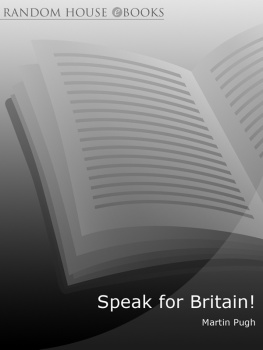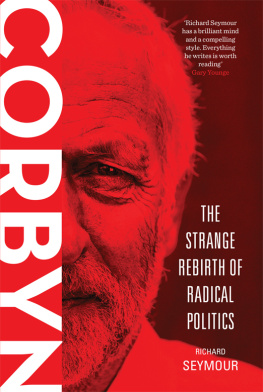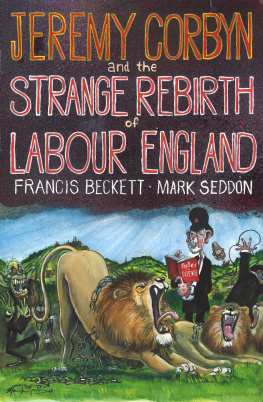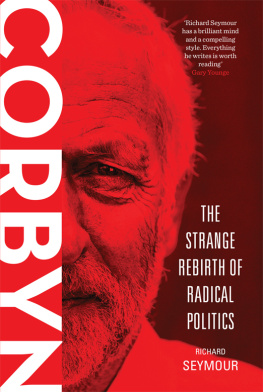William Collins
An imprint of HarperCollinsPublishers
1 London Bridge Street
London SE1 9GF
WilliamCollinsBooks.com
This eBook first published in Great Britain by William Collins in 2018
Copyright Lewis Goodall 2018
Cover image Shutterstock
Lewis Goodall author asserts the moral right to be identified as the author of this work
Graphs redrawn by Martin Brown
Image by In Pictures Ltd/Corbis via Getty Images
A catalogue record for this book is available from the British Library
All rights reserved under International and Pan-American Copyright Conventions. By payment of the required fees, you have been granted the non-exclusive, non-transferable right to access and read the text of this e-book on screen. No part of this text may be reproduced, transmitted, downloaded, decompiled, reverse engineered, or stored in or introduced into any information storage retrieval system, in any form or by any means, whether electronic or mechanical, now known or hereinafter invented, without the express written permission of HarperCollins e-books.
Source ISBN: 9780008226695
Ebook Edition September 2018 ISBN: 9780008226701
Version: 2018-08-28
For Grandad, for teaching me
Contents
I work in a profession in which my working days are essentially a series of sugar hits. In TV news, our deadlines are short, our working days long but our time horizons truncated. While most peoples jobs and projects can spread out for weeks, if not months at a time, in ours the complications, the highs, the lows, the screw-ups are compressed into a single day. For us, a week is a long-term gig. As a consequence my brain has been rewired by a thousand two-minute lives, three hundred three-minute packages, ten score of online instant analyses.
Writing a book then, all 130,000 words of it, has been a major challenge, the ultimate slow burn. And then, every time I was able to concentrate for long enough, everything would change. In the time Ive been writing, Jeremy Corbyn has gone from zero to hero (and some would say back again). Every time I thought I understood what was happening, political life would find a way of making me reach for the delete button, once again. In three years, the Labour Party has moved from extinction to the precipice of government, and therefore this book, its premise and its contours have fluctuated almost as much as Corbyns reputation. What began as an obituary became a living history of rebirth. At the same time, and to my surprise, it became infused with my own history. For this I am indebted, principally to my family, especially my mum and dad, for giving more political insights and wit and wisdom than I could glean from a lifetime in Westminster. I also have to say an enormous thank you to Tom Killingbeck, my editor, for encouraging me to strike out beyond my working life, beyond Westminster and the corridors of power, and for encouraging me to explore my own story and how both were mutually reinforcing. I owe him special gratitude for his patience especially given he inherited the book from his colleague Joe Zigmond, to whom I am very grateful for believing in the idea in the first place. The same is true of my agent Claudia Young she took half an idea, in the Newsnight green room, and helped develop it into the book youre holding. Iain Hunt, also of William Collins, handled the final stages of the edit brilliantly. Id also like to thank the dozens of people, politicians, journalists, aides, activists and the rest, who spared the time to be interviewed. I hope they feel everyone, of every opinion within the Labour Party and without, has had a fair shake.
Special thanks must go to my employers, Sky News, especially the former head of politics Esme Wren, for giving me the space and time to write the book and so many opportunities more generally, many of which have fed into the contents of these pages. In that vein Im also grateful to the whole of the senior Sky News management team, especially Esmes successor Dan Williams, Jonathan Levy, head of newsgathering, and John Ryley, the head of Sky News, for their interest and willingness to throw me new challenges. My colleagues, too, in the Millbank bureau are too many to mention, but are a never-ending source of inspiration, humour and fun. They make me, in so innumerable ways, a better journalist. After eighteen months at Sky News, I can say without hesitation that I am extremely proud to work for an organisation which reports politics without fear or favour and which, in my entirely impartial opinion, has the best political team in Westminster. In particular, my colleague and best friend in TV, Zach Brown, has worked with me since the beginning at Newsnight and now Sky. My best work especially on matters Labour has been with him. Long may it continue.
Im grateful too to my friends, many of whom have contributed ideas to the book apologies in advance if Ive stolen them. In particular Id like to thank Marc Kidson and James Stafford, two brilliant minds, who over the years since our Oxford days have helped shape my thinking on so many things. If you read something here that makes you think, chances are one of them had a hand in it.
As you wade through these pages, there is one man who looms large. My dear grandad, Alan. It is no exaggeration to say that without him there would be no pages. A more thorough tribute is reserved for him at the end but it would still be remiss not to mention him here. His imprint, his essence, is in every bit of what youre about to read. I only wish he could read them for himself. With his no longer being here, I will have to leave that to his darling wife, my beloved nan. My dearest, this book is for him.
And to my darling girl my imp, my Cherie, the cleverest person Ive met, the one who has had to hear all my stupid thoughts again and again and then read them in print and still be kind about them I cant give all those evenings and holidays back but I promise, no matter what happens to the Labour Party, this is my last word on the subject.
Probably.
Lewis Goodall
London
July 2018
Prologue
Son, where were from, you could put a donkey in a Labour rosette and itd win.
My dad, many, many times
Im not sure theres been a time when my family wasnt involved in making things. Some of my earliest memories involve my grandad coming home and presenting the three- or four-year-old version of me with some samples of buttons, medals or coins that hed helped make at the Birmingham mint. Grandad, as its works manager, got my dad a job there too. He was a lanky 22-year-old, just moved to Birmingham to be with the 17-year-old mum who had just given birth to me. Theyd met at a Scarborough holiday camp a year or so before my dads first ever holiday. He was from Middlesbrough, the son of a dockworker, and before then hed barely left the town as a kid. He later said it put him off holidays for life. He didnt have a qualification to his name, except a GCE in needlework. This didnt help at the mint, where the only job my grandad had available was on a machine that needed a delicate approach and small fingers, which probably explained why all the other workers in the department were women. He didnt, Grandad told me later, excel himself but he tried his best. We all lived cheek by jowl in Erdington in north Birmingham: me, my two aunts, Mum and Dad, and my grandparents. I was the apple of my familys eye; it probably explains why Im unafraid of the limelight. It was a mindlessly happy existence for a little boy. But after my grandad could fiddle the figures for Dad no more, my nan phoned up the Rover plant, on the other side of the city in Longbridge, where shed heard they needed some new workers. She asked if they had any openings for her son-in-law (just about hed married my mum weeks before; I was page boy at the ripe old age of four). So we left Erdington and crossed the city to the south Birmingham suburb of Northfield, just next to the vast Rover plant. I walked past it to secondary school for five years.


